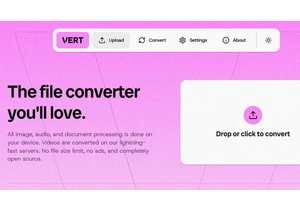AstroAccess, a nonprofit that promotes disability inclusion in space, has partnered with the Aurelia Institute to advance astronaut diversity by doing research on zero-gravity missions.
“In one sense, space is the ultimate equalizer: everyone who leaves Earth is subject to the radical experience of leaving gravity behind,” the Aurelia Institute said in a blog post this month. But in another sense, real barriers to entry still exist for astronauts—be it cost, physical access, or lack of outreach.
In an effort to change this, Aurelia led the Horizon 2022 zero-gravity flight, which took place on May 22, with 25 crew participants from various organizations, including “ambassadors” for AstroAccess. The 90-minute mission simulated space flight with 20 parabolas of lunar, Martian, and zero gravity that lasted about 20 seconds each.
Mission basics
Each crew member on the Horizon flight had a research goal, art project, or storytelling task to complete while in microgravity. AstroAccess’s participants focused on specific new tests and experiments:
- Centra “Ce-Ce” Mazyck, a wheelchair user, navigated the cabin using only hand holds.
- Apurva Varia tested colored LED lights that non-verbally signaled deaf flyers to prepare for zero gravity.
- Varia and ASL interpreter Justin Baldi also tested whether astronauts could comprehend sign language, which relies heavily on eye contact and facial expressions, while floating at different angles from each other.
- Viktoria Modesta designed and tested a lower-leg prosthetic built specifically for microgravity conditions.
- Mona Minkara used textured surfaces, such as velcro and corduroy, on the walls of the cabin to get oriented without using sight.
Extending access to space
A history: In the 1960s, 11 deaf men participated in NASA experiments regarding the effects of weightlessness on the body. These showed that some deaf people, due to vestibular system differences, are immune to motion sickness. This makes them “more adaptable to the foreign gravitational environments,” per AstroAccess—but no deaf astronaut has ever gone to space. In fact, NASA bars people who are blind, deaf, or have mobility-related disabilities from space missions.
A future: Last summer, the European Space Agency (ESA) announced plans to launch the first physically disabled astronaut into space. The agency said in January that it had narrowed 22,000+ applications down to below 1,400 for its 4- to 6-person program—and that 29 of those remaining applicants have a physical disability. And as space flight increasingly shifts to private companies, there may be more opportunities for expanded access to space.
What’s next? Following this mission and AstroAccess’s inaugural flight last fall, AstroAccess Flight 2 will take place on Nov. 19, 2022, with a crew of new and repeat ambassadors.
This story originally appeared on Payload and is republished here with permission.
Melden Sie sich an, um einen Kommentar hinzuzufügen
Andere Beiträge in dieser Gruppe



Do you receive login security codes for your online accounts via text message? These are the six- or seven-digit numbers sent via SMS that you need to enter along with your password when trying to

We were supposed to be finished with files by now.
For years, tech companies (well, certain tech companies) tooted their horns about a future in which files didn’t matter. You d



Rather than the Sunday scaries or toxic bosses, employees have unlocked a new workplace fear: office chair butt.
While not a new concern, the term has resurfaced on TikTok to describe ho
